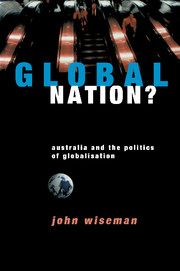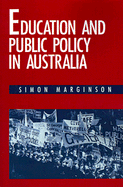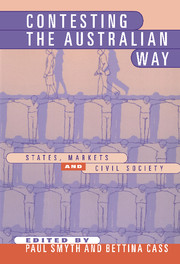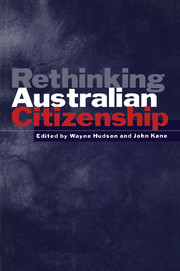Global Nation?
Globalisation was one of the most ubiquitous buzzwords of the late twentieth century, yet its meaning was often elusive. Retrenchments, trade alliances, global warming, currency devaluations, and so on are often explained as unavoidable consequences of globalisation, and even everyday things - from the food we eat to the television we watch and the clothes we wear - are apparently impacted upon by globalisation. This 1998 book provides an accessible exploration of the meanings and implications of globalisation. The discussion is carefully grounded in the changing social, economic, ecological, and political relationships of Australia. Global Nation? also looks at a range of existing and potential responses to the globalisation process, arguing that there may be alternatives, even though we are increasingly told that there are not.
- written in an accessible, lively style
- comprehensive introduction to debates about globalisation, from Australian perspective
- up to date and provocative
Reviews & endorsements
'Global Nation deals extremely well with issues that no Australian environmental education can afford to ignore. There is no better reference currently available that relates economic globalisation to global ecological issues and Wiseman's book should be high priority professional reading for all teachers of current and prospective VCE subjects/units including Environmental Studies/Science, Geography and Environmental Economics.' Noel Gough, Deakin University
Product details
December 1998Paperback
9780521597555
212 pages
228 × 153 × 17 mm
0.355kg
Available
Table of Contents
- 1. Global nation? An introduction
- 2. Breaking the spell? Understanding globalisation
- 3. Transforming the global economy? Trade, capital and economic power in the late twentieth century
- 4. Onto the global racetrack? Globalising the Australian economy
- 5. The price of competitiveness? The social impact of globalisation on Australia
- 6. Wired to the world? Australia and the globalisation of media and information technologies
- 7. Nowhere to hide? Australia in the global environment
- 8. Where in the world? Transforming Australian political relationships and national identities
- 9. Alternative strategies? Thinking and acting globally and regionally
- 10. Alternative strategies? Thinking and acting locally and nationally
- 11. Conclusion.







